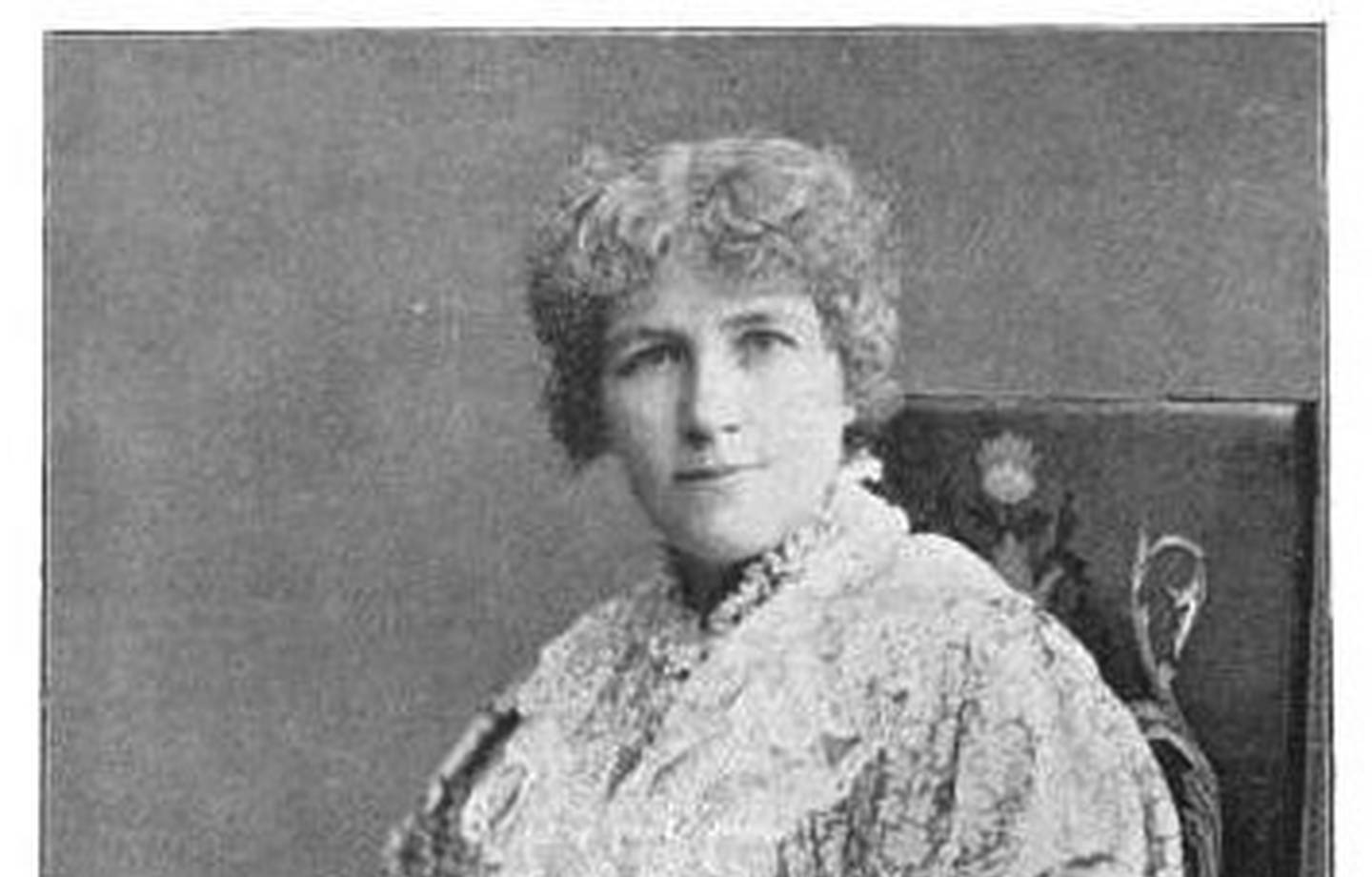Zadel's Poem for William Cullen Bryant
WILLIAM CULLEN BRYANT
by Zadel Barnes
" Like one who wraps the drapery of his couch
About him, and lies down to pleasant dreams."
--Thanatopsis.
Amantem sui Natura Salutat.
Thus sang a glorious voice, that, full and free,
Filled all the atmosphere from star to sea : —
" Speed hither, winds, and blend in noble mirth
The many-chorded harmonies of earth ;
Bend, cloudless heavens, thy quickening golden eye
Beyond the mountain snows that crest on high
To the deep centres where my germ-worlds lie,
Till all my rolling garden bourgeons fair,
As down the eternal pathway of the sky
I cleave the blue illimitable air."
Lightly as airs that follow summer rain,
The glorious voice sank to a softer strain : —
"Glide, joyous brooks, with silvery lullings where
Tall reeds and glistening grasses interlace
With willow, drooping like a mermaid's hair,
To screen the 'waterfowl's' green hiding- place.
And dream they dance with gentle sea-nymphs where
Through pale-green brine descends the ocean- stair.
"And thou, his 'childhood's favorite,' 'Rivulet,'
See that thou dost not in thy sports forget
To kiss with lightsome lip, all soft and wet,
In springs to come, the earliest violet
That opes its modest beauty on thy brim ;
In tender covenant, 'sweet rill,' with him
Whose ' little feet,' in springs that come no more,
Used oft to press the greenness of thy shore,
And in whose song men hear, as in a dream,
The gladsome murmur of thy winding stream ;
For he hath had his hope, and written high
The name he dreamed in youth 'should never die.'
" Come, gentle ' west wind,' that in fragrant vale
Lists to the 'jug-jug' of the nightingale,
Or hears among the pines that dusk the hill
The wooing ' ring-dove ' and the whippoorwill, —
Come, breathe thy hymn in leaves that bend above
Him who hath named thee ' wind of youth and love.'
Bring all thy beauty to his coming now :
Let thy soft breathings, blending odors rare,
Tune the green reed-harps where his slumbers are !
Call thy bright butterflies — in half-embrace
Of shining wings — to veil the sacred place ;
Ask of thy lilies, scarlet, purple, white,
Their fairest petals for a drapery bright
Which the deft humming-bird and housewife- bee
Shall weave with skeins of cobweb skilfully ;
Sprinkle with incense thy most fragrant leaves
Distil in dewy morns and drowsy eves.
"Well mayst thou give the welcome of a queen
To this calm guest, who, silent and serene,
Comes in ' unfaltering trust ' sustained, content
To make my couch yet more magnificent."
June plucked the budding roses from her breast,
And cast them from warm palms to east and west,
And, smiling, blew from open dewy mouth
White lilies north, and scarlet lilies south ;
For, anywhere that rose or lily fell,
Bird, bee, and butterfly would know full well
That they were summoned from the flower and nest
To do him honor who had loved them best.
Lightly from mossy cleft and balmy glade
Flitted those tiny shining creatures made
To pass their brief bright being of an hour
In fanning fragile wings o'er wave and flower.
Up flew the wren and the sweet-throated thrush,
The ground-bird rose from grasses growing lush,
The oriole lifted plume from sides aflame,
The bluebird from the bending hawthorn came,
Red-vested robin waved his surtout brown,
The lark from dazzling eyry fluttered down,
Till they were as a cloud in the white tide.
Fast, fast their whirring numbers multiplied :
Ten thousand flutes and bugles blown in glee
Could ne'er have wakened such a jubilee
As on they sang, each in its own blithe way,
" Our friend, our gentle friend, has come to stay ! "
And slowly from the deeper grove appear,
Listening, the luminous - eyed " white - footed deer,"
With softer twitterings they hovered near,
Their dark eyes brighter for the brilliant notes
Swelling unwarbled in their glossy throats.
Some thronged on slender branches, blossom- drest,
That linked their flickering shadows o'er his breast,
And some on bough and stem and flowering spray,
While " Robert o' Lincoln " led the loving lay.
His gallant crest and shoulders were as white,
His coat as black, as on his wedding-night,
As merrily he swung, and told his name ;
While with her timid chirp his pretty dame
Through the tall grass — remembering whose praise
Made such a merit of her wifely ways,
And seeing how his blessed couch was decked —
Brought shyly her "white eggs" with "purple necked."
Softly at first, then clearer swelled and higher,
The grateful chorus of that countless choir.
As, closer circling to his place of rest,
Each sang the little song that pleased him best,
Bearing a " snow-white flower," a little child
Drew near, with artless gaze and motion mild :
"'Stainless,' he said, 'with stainless, sweet with sweet ;
' And he will like to have it at his feet
Who loved so much to walk among the flowers,
And talk with little children hours and hours.
That I remembered just his very words, —
Because I love him so, — and ran to bring
My ' snow-white flower ' when I heard you sing ? "
" We love him too," so all the birds replied,
And looked at her with little heads aside ;
" For he loved us, and we were ne'er afraid
To show him where our pretty eggs were laid,
Or sit on the low branches where he stood
With brow uncovered in the bloomy wood.
And we shall come with summer every year,
And sing to the dear friend who slumbers here.
But when" (they sang more low) "the golden- rod,
And fair ' fringed gentian ' that looks up to God,
Begin to droop and wither, and the sky
To chill and darken, then the birds must fly :
When trees are naked, and the tempests keep
Wild revels with them, who will guard his sleep ?
" Then from the mists of mountains far and high
Slid down faint voices in a slender cry : —
" Fear not, ye little birds ; for when ye go,
And when the bitter winds begin to blow,
With airy footsteps, and with robes that flow,
We will come down your vacant place to fill,
And with the touch of fingers light and chill
Weave him a lustrous raiment, lovelier far
Than all the burning blooms of summer are ;
Rear him who loved all things that
God hath made
A temple exquisite, with colonnade
Of fluted pillars, azured and embossed
With ' tufts of silvery rime,' and ' wreaths of frost ;
' And he who rests beneath it — he will know
We are his 'Little People of the Snow.'"
------------------------
"Old sorrows are forgotten now,
Or but remembered to make sweet the hour
That overpays them."
----Flood of Years.
In the cold spray of the oncoming "flood"
Already veiled in evening's mist he stood,
Yet turned, and told the vision he beheld —
As the exhaustless current nearer swelled —
To them who waited, yearning for each word ;
And when he could not for the roar be heard,
Still they could see him for a little while
Look toward them from the thickening mist, and smile
As he would comfort them ; then on the shore
Broke the dark wave, and he was seen no more.
But not as one in grief, or chill of fear,
He saw the billow's breaking edge draw near,
And knew the roaring on the abysmal brim
Beneath the " belt of darkness " summoned him.
Serene his eye, as calmly looking back
He saw on the broad torrent's desert track
His gallant ship that long ago set sail, —
Hope at the helm, and promise in the gale, —
With the vast fleet of unreturning hopes
Lie bleaching on the wave-uncovered slopes,
And thought, "The hope it did not bring it bore ;
Life was the richer on some other shore :
For the Great Purpose,
Love, is never crossed :
No pain is useless, and no joy is lost."
With the sweet greetings that came down the tide
To bless and bid him
God speed who had cared,
With deep unselfish love, how nations fared.
Like breezes blown from fair, far isles of peace,
Rang the glad paean from the hills of Greece : —
" From Scio's vale, where ' Turkish falchions shed'
Her people's blood till every wave ran red,
Clear shall her waters flow into the sea ;
' For God and her good sword ' shall set
Greece free :
Yet ' terrible ' shall her ' deliverance be :
' So ran, great soul, thy solemn prophecy."
Where the wild Sierra slopes to spicy plain,
From her weary bondage rose the voice of Spain : —
"Blessed be the eyes that beheld the day
When my sons should lift my galling yoke away,
And once more my vineyards to the blue sea
Be sweet with the thanksgiving of the free ! "
From the white Alps and purple Apennines,
And rivers sweeping under fruited vines,
Down scarred Vesuvius to the leaping sea,
Swelled the glad cry, " ' Italy is free ! '
As ye foretold, the good God, he hath willed :
Behold, great seer, thy prophecy fulfilled ! "
And Europe from her darkening conflict cried,
"Thy word to me — it shall be glorified!
My ' struggling multitude of states ' must be
Deluged in blood ;.but blood shall make them free.
The 'moment set,' as shown thee in the past,
To ' rescue and raise up,' is come at last ! "
Then in his own dear land, where his brave strain
In strong vibrations shattered Slavery's chain,
Pierced Error till he writhed in mortal pain,
And lifted bruised Truth to heaven again,
Rose the half-smothered wail of those who stood
Behind him when he met the mighty flood ;
Saw him caught up, smiling, swept from view, —
If what the "good and wise have said" be true,
Only to pass where wisdom is revealed,
Sorrows forgot, and wounds forever healed ;
Where all who love and suffer here again
Renew the blessed vow, without the pain ;
And where is endless peace in place of strife,
And Love hath wedded Everlasting Life !
//////////////////////////////////////
I see why Greenleaf Whittier compared it with Milton's Lycidas, but as I love Emerson and Djuna, I love this poem far more than Lycidas. I am floored.
Also, this is not at all appropriate, but:
"To kiss with lightsome lip, all soft and wet"
reminds me of Djuna.
This:
Come, breathe thy hymn in leaves that bend above Him who hath named thee ' wind of youth and love.'
reminds me so much of Emerson.
And here is the "oat" turned into an Aeolian Harp:
Let thy soft breathings, blending odors rare,
Tune the green reed-harps where his slumbers are !
This is like Maeterlinck's prose about plants, ants and bees:
June plucked the budding roses from her breast,
And cast them from warm palms to east and west,
And, smiling, blew from open dewy mouth
White lilies north, and scarlet lilies south ;
For, anywhere that rose or lily fell,
Bird, bee, and butterfly would know full well
That they were summoned from the flower and nest
To do him honor who had loved them best.
Regarding,
“To the deep centres where my germ-worlds lie.” ,
Kirsten Anderson comments: Rather GM Hopkins-ish: i.e., “though fields of wanwood leaf-meal lie...”

